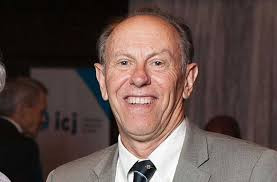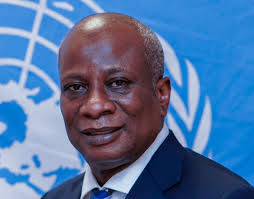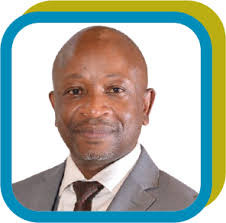
UNIONS representing teachers have criticised the newly-introduced Heritage-based Curriculum saying it heavily borrows from the ruling Zanu PF party’s manifesto.
According to the Primary and Secondary Education ministry, the inculcation of Ubuntu philosophy in learners will be compulsory under the new curriculum.
This follows the scrapping of the controversial Continuous Assessment Learning Activities, a programme which involved learning activities, projects or assessment that required learners to perform, demonstrate their knowledge, understanding and proficiency. It contributed 30% to a student’s final marks, while the other 70% came from end of year class examinations.
Ubuntu is a philosophy that supports collectivism over individualism.
In a circular dated April 22 addressed to all education departments, Primary and Secondary Education ministry secretary, Moses Mhike said the new curriculum was meant to produce patriotic students.
“In order to produce a highly competent pupil who has a Zimbabwean outlook, the following aims of education should be pursued; strengthening measures to mould the pupils to cherish and practise the Zimbabwean philosophical orientation of Unhu/Ubuntu/Vumunhu,” partly read the circular.
The circular said the core values of the Heritage-based Curriculum were “discipline, manifestation of patriotism, Ubuntu, volunteerism, honesty and pride in being Zimbabwean”.
Educators, who spoke to NewsDay yesterday, however, condemned the new curriculum saying it was meant to produce “politicised robot machines” rather than useful individuals in society.
- Teachers to embark on a go-slow
- Mawere’s debut novel advocates against violence
- Edutainment mix: Heritage preservation can bring socio-economic development
- Teacher unions blast free service move
Keep Reading
Amalgamated Rural Teachers Union of Zimbabwe leader Obert Masaraure said the new curriculum was politicised.
“Heritage studies are a Zanu PF manifesto which is used to indoctrinate learners by sharing fictitious falsified history of heroics of the ruling party,” Masaraure said. “That is not the education we want for our children.”
Masaraure said the curriculum would produce learners averse to critical thinking.
“Unfortunately, the government has decided to just impose heritage studies as the only compulsory subject that could educate citizens on rights, duties and obligations,“ he added.
Progressive Teachers Union of Zimbabwe president Takavafira Zhou said there was no consultation in coming up with the “politicised” curriculum.
“It is not a product of broad consultation, but imposition from above for political expediency,” Zhou said.
“It is a product of self-pollination from political players, as opposed to a healthy cross-pollination of ideas and is, therefore, weak. It is more of orienting learners to locality under the rubric of heritage, which is dangerous in a global village.”
Zhou raised dust over lack of a budget for the new curriculum.
“It will be difficult to implement just as the previous so-called updated curriculum,” he said.
“There is no clarity on how the ministry will resolve the crisis of 75% of primary and 65% of secondary schools without electricity and solar power in order to put schools at par for the introduction of ICT and science and technology.”
He said the directive lacked clear plans of building the more than 3 000 schools needed in Zimbabwe or even employing more than 50 000 teachers needed in schools.
“Without clear benchmarks and industrial hubs in schools, let alone proper infrastructure, ICT and science and technology or a budget for the Heritage-based Curriculum, it remains a pipe dream built on sandy grounds that will easily collapse,” he said.
Zhou further pointed out rudimentary shortfalls in the new curriculum such as “the absence of Agriculture at O Level but inclusion at A Level ... the absence of Accounting at A Level while included at O Level”.
“In other words, there is no spiral learning in this heritage education,” he said.
Educators Union of Zimbabwe secretary-general, Tapedza Zhou, said the success of the new curriculum hinged on the government motivating teachers with good salaries.
“It goes without saying that any programme placing teachers at the pivot misses the mark well before it commences because teachers are financially, psychologically and emotionally broke,” he told NewsDay.
“Any programme heavily dependent on demotivated teachers won’t see the light of day.
“The ministry still owes teachers their monies due to failure to reimburse them in 2021 and 2022 curriculum workshops, where teachers used their own resources to attend workshops.
“The Education minister should take seriously the issue of motivation of teachers as the decisive factor upon which the successful implementation of the new Heritage-based Curriculum rests,” he added.











